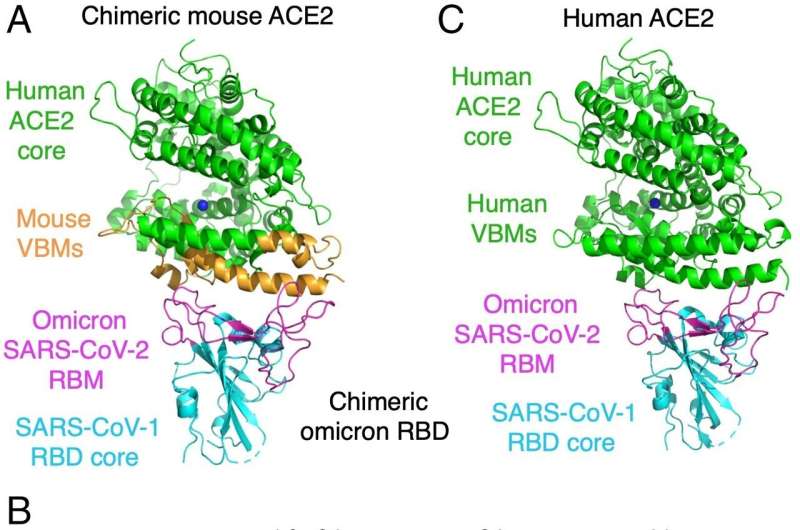
In a new study published in Proceedings of National Academy of Sciences researchers from the University of Minnesota Medical School and College of Biological Sciences provided new insights into the evolutionary origins of the COVID-19 omicron variant. Their findings suggest the omicron variant may have been transmitted from an animal species to humans.
An essential step in coronavirus infection occurs when spike protein binds to the host’s receptor. After establishing consistent infections in the host, the spike protein becomes adapted to the host’s receptor.
Through detailed structural biology analysis, researchers identified several mutations in the omicron spike protein that were uniquely adapted to the mouse receptor and incompatible with the human receptor. This suggests the omicron variant might not have originated from humans directly, and instead may have been transmitted from other animal species to humans.
“These omicron mutations are evolutionary traces left by the virus during its transmission from one animal species to another,” said lead author Fang Li, Ph.D., an endowed professor of pharmacology at the U of M Medical School and director of the Center for Coronavirus Research. “Our detailed structural biology approach has successfully recovered these subtle yet unique evolutionary traces.”
Researchers say the COVID-19 virus is capable of infecting many animal species—which is one of the main reasons why variants keep emerging. These findings also suggest that epidemic surveillance of rodents may be important for stopping new COVID-19 variants from emerging in the future.
Source: Read Full Article